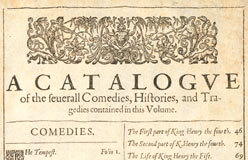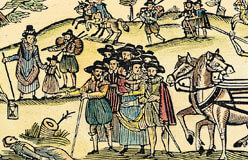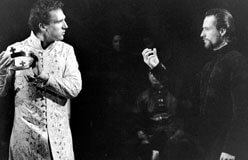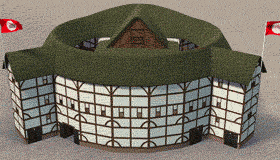Shakespeare’s tragedies are kind of like his comedies.
But the hero’s problems are so big that the plays end in death. The ancient Greek philosopher Aristotle tried to explain why audiences “enjoy tragedies.” He said it was “the tragic pleasure of pity and fear.” For example, Shakespeare’s Othello is a brave general. He’s also jealous. This lets the evil Iago trick Othello into killing his own wife. We pity Othello because he is noble but not perfect. We are also afraid of being like him.
Shakespeare’s greatness doesn’t come from his plots. He borrowed them from novels and histories. Sometimes they came from other plays. Hamlet may be the world’s most famous play. It’s also a typical Elizabethan revenge tragedy. A father’s ghost tells his son to avenge his murder. But Shakespeare’s creative language turns old stories into great dramas. Back then, theaters didn’t have realistic scenery and lighting. So people spoke of “hearing” plays rather than seeing them. Shakespeare’s complex characters allow actors to play them in different ways. That lets audiences enjoy the same play more than once.







